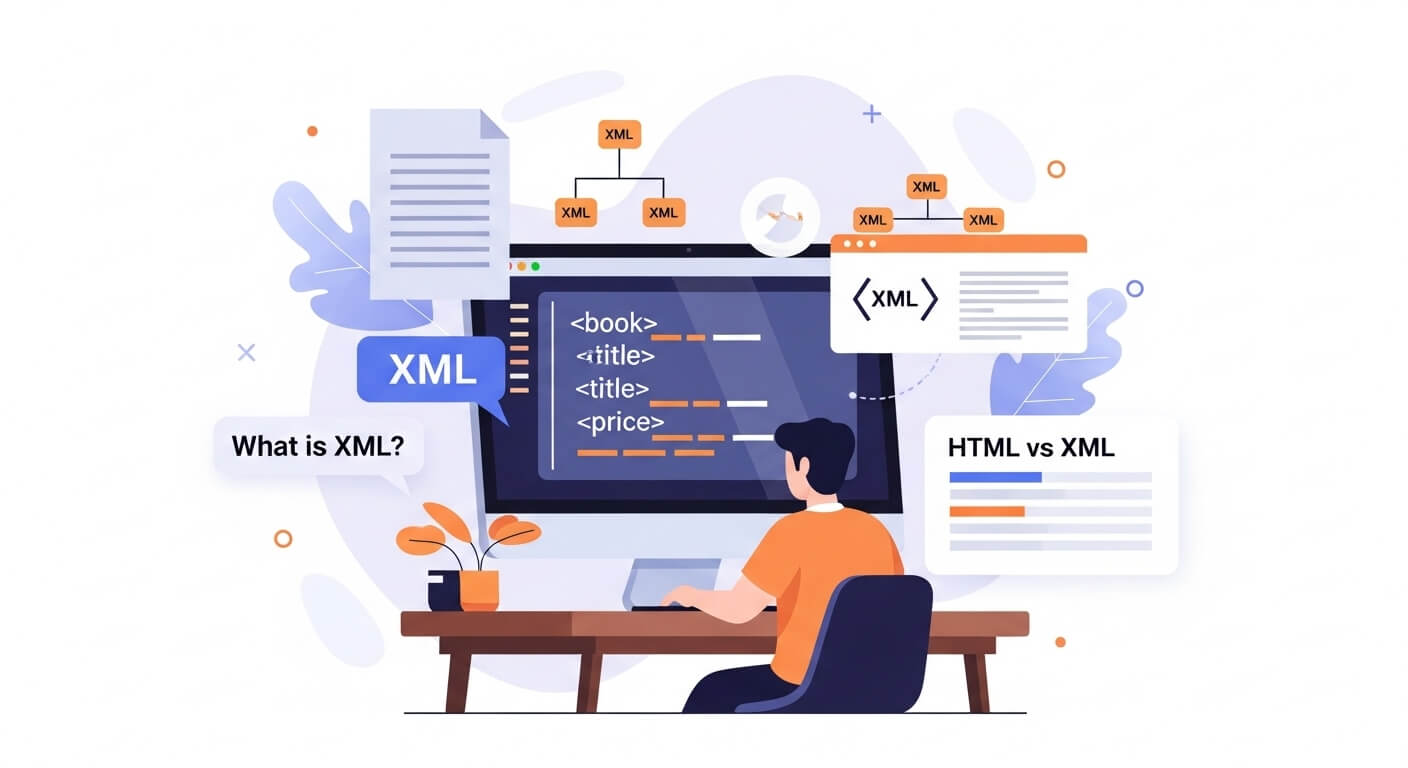If you’ve ever wondered how to view XML document formats on your computer or mobile device, you’re not alone. XML (Extensible Markup Language) files are commonly used for data storage, configuration, and web applications—but many people aren’t sure how to open and understand them.
In this guide, we’ll walk you through how to view XML document using different methods. Whether you’re a developer, student, or just someone who stumbled upon an XML file, this article will help you make sense of it.
You may also like: HTML Meta Tag Redirect: 7 Powerful Ways for Seamless Redirection
What Is an XML Document?
Before diving into how to view XML document, let’s understand what XML is. XML is a markup language much like HTML. However, while HTML is designed to display data, XML is designed to store and transport data.
An example XML file might look like this:
<note>
<to>User</to>
<from>Admin</from>
<heading>Reminder</heading>
<body>Don't forget to check out our tutorial!</body>
</note>To read or view such data correctly, you need the right tools.
How to View XML Document: 7 Best Methods
Use a Web Browser (Simple and Free)
One of the easiest ways on how to view XML document is by using a browser like Chrome, Firefox, or Edge.
Steps:
- Open your browser.
- Drag and drop the XML file into it.
- Or, right-click the file > Open With > Select your browser.
Most modern browsers format XML content, making it readable and expandable.
👉 External Resource: How browsers handle XML
Open with a Text Editor
If you want to manually view or edit the XML content:
Recommended Editors:
- Notepad++ (Windows)
- Sublime Text (Cross-platform)
- VS Code (Highly recommended)
These editors offer syntax highlighting and proper indentation, improving readability.
Use Online XML Viewers
Wondering how to view XML document without installing software? Use online tools.
Popular Tools:
Just upload or paste your XML, and the tool will structure it neatly.
Open XML in Excel
If your XML contains structured data like rows and columns:
Steps:
- Open Excel.
- Go to File > Open > Browse and select XML file.
- Choose “As an XML table.”
This method helps visualize XML data in spreadsheet format.
Use IDEs or Development Tools
Developers often need deeper interaction with XML files. Tools like:
- IntelliJ IDEA
- Eclipse
- Visual Studio
support XML viewing, editing, and validation, making this an advanced option for users with technical needs.
View XML on Mobile Devices
Want to know how to view XML document on mobile?
For Android:
- Use apps like “XML Viewer” or “Acode.”
For iOS:
- Use “Textastic” or “Koder Code Editor.”
These apps allow viewing, editing, and even validating XML files on the go.
Use XML Parsers for Custom Viewing
For advanced users or developers who want to parse XML programmatically:
- Use Python’s ElementTree
- Use JavaScript’s DOMParser
- Use Java’s SAX or DOM APIs
These methods allow manipulation and extraction of data directly from the XML.
👉 Learn more: W3Schools XML Tutorial
Why You Need to Know How to View XML Document
Understanding how to view XML document files is essential because XML is everywhere—RSS feeds, configuration files, SOAP APIs, and more.
Some key benefits:
- Enhances debugging for developers.
- Allows non-developers to read stored data.
- Useful for data migration and transformation.
Best Practices While Viewing XML Documents
- Use proper software that supports syntax highlighting.
- Validate XML to ensure it follows correct structure.
- Avoid editing XML in basic editors like Notepad, which may distort formatting.
Conclusion: Mastering How to View XML Document with Confidence
By now, you should feel confident about how to view XML document files using various methods—from web browsers and text editors to Excel and mobile apps. Whether you’re technical or not, XML doesn’t have to be intimidating.
Choose the method that best fits your needs, and you’ll never be stuck staring at confusing code again.


Leave a Reply